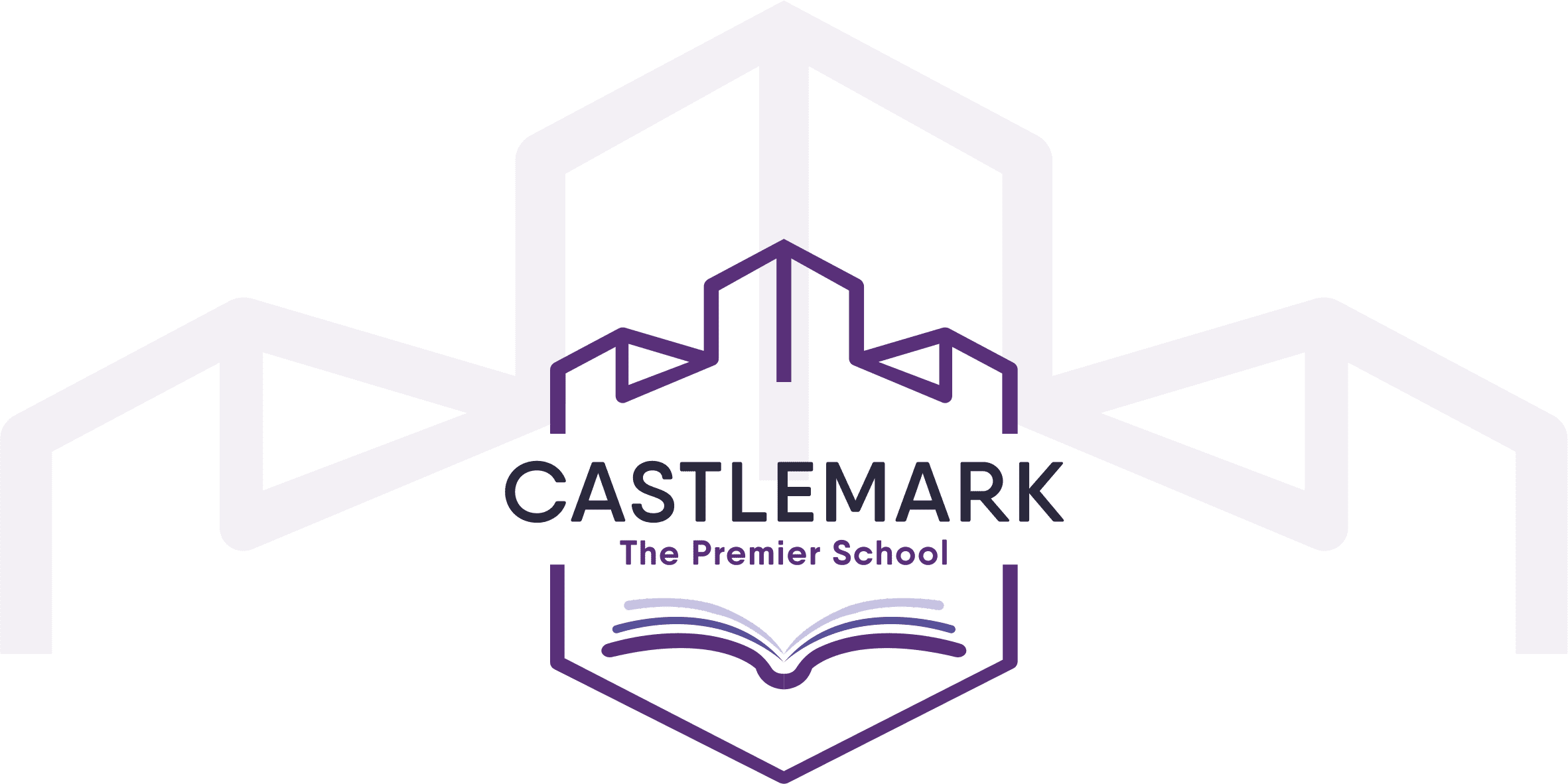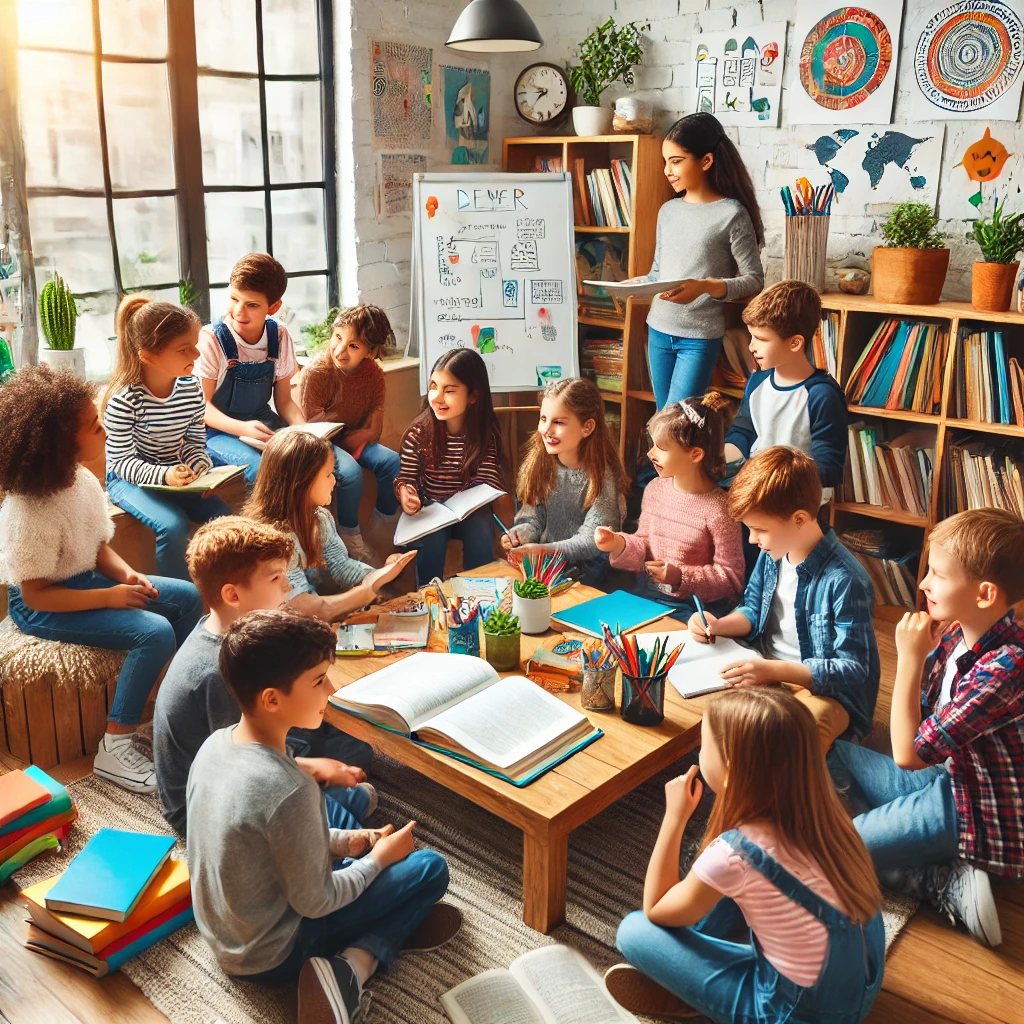Group learning is when people work together to learn, solve problems, and share ideas. It’s a way of learning that focuses on teamwork and helping each other instead of working alone.
This type of learning is important because it teaches skills like communication, teamwork, and creative thinking, which are needed in real life. Group learning also makes learning more fun and helps everyone understand things better by learning from each other.
This blog will highlight the importance of group learning and its role in today’s education!
Group Learning & Modern Education System
Group learning means students work together to learn. The get the opportunity to share their ideas, ask questions, and solve problems with their team. It focuses on teamwork instead of learning alone. In today’s era, modern education uses group learning to make lessons more engaging and interactive.
In the past, teaching was mostly about listening to the teacher and memorizing facts. But now, schools and colleges want students to think, talk, and work with others. Group learning is a big part of this change. It helps students participate actively in the learning process.
Teachers use group activities like team projects and discussions to encourage group learning. These activities help students share their thoughts and learn from each other. Instead of just giving answers, teachers guide students and support their teamwork.
Modern education also uses technology to support group learning. Students can work together online using tools like video calls, shared documents, and group chats. This makes it easier for students to learn together, even if they are in different places.
Group learning fits well with the goals of modern education. It prepares students for the real world, where teamwork is very important. By working in groups, students learn how to communicate and solve problems together.
In simple words, group learning is now a key part of teaching and learning. It helps students not only gain knowledge but also develop skills they will use in everyday life.
What is Group Learning?

Working in a group teaches students many valuable lessons that they might not learn while studying alone. One of the key lessons is collaboration. Students learn to work together towards a common goal. They understand how to share ideas, listen to others, and respect different opinions.
Group work also teaches problem-solving. When challenges arise, group members discuss and brainstorm solutions together. This helps them develop critical thinking. Students also learn how to manage conflicts. Disagreements happen in groups, but resolving them helps build patience and understanding.
Another important lesson is responsibility. Each member is given a task, and everyone’s effort is needed for success. This helps students learn accountability and teamwork, which are crucial for real-life situations.
How to Make Group Learning Effective?
Grouping students for cooperative learning requires thoughtful planning. Teachers should consider different approaches to create effective groups:
Mixed-Ability Groups
Combining students with different strengths allows them to learn from each other. For example, a student who is good at math can help others, while another who writes well can handle written tasks.
Shared Interests
Grouping students based on shared interests can make the activity more engaging.
Random Groups
Creating random groups of different classes encourage students to interact with classmates they don’t normally work with.
Group Size
Groups of three to five students work best. This ensures that everyone has a role and no one is left out.
Teachers play a significant role in grouping students for study. Moreover, they monitor the group dynamics and must guide students by offering help when needed, and ensure that all members are actively participating. Clear instructions and defined goals make the group work more productive.
Do Students Learn Better in Groups?
For many students, group learning makes the learning process more effective and enjoyable. It allows them to exchange ideas and understand concepts better. When one student struggles to understand, another can explain it in a simple way, making learning easier.
Group discussions also encourage active participation, which is more effective than passively listening to a lecture. Students often remember what they discuss in groups because they are directly involved in the learning process.
However, group learning doesn’t work the same way for everyone. Some students may prefer quiet, independent study. This is why a balance between group and individual learning is important.
What Skills Are Developed in Group Learning?
Group learning builds several important skills, including:
Cooperation skills: Students learn to cooperate, share tasks, and achieve goals together.
Understanding & Communication: Sharing ideas and giving feedback improves how students express themselves and understand others.
Critical Thinking: Group discussions challenge students to think deeply and analyze problems.
Leadership: Taking charge of tasks or guiding discussions helps develop leadership qualities.
Listening: Listening to the group mates and understanding the task in a better manner.
Time Management: Groups must organize their time to complete assignments on schedule.
Social Skills: Working in a group that helps students interact confidently with others, which is useful in everyday life.
So these are just a few skills, other skills that children learn from group learning are as follow:
Problem-solving skills
Conflict resolutions
Practical knowledge
Diverse exposure and understanding
Are There Any Benefits?
Yes, group learning has many benefits that make it an important teaching method in modern education. Here are some key benefits:
Improved Understanding: Discussing topics in a group helps clarify concepts and ideas.
Shared Responsibility: Students share the workload, which makes learning less stressful.
Building Confidence: Support from peers helps students feel more confident in expressing their thoughts.
Better Problem-Solving: Groups often find creative solutions by combining different ideas.
Real-Life Preparation: Group learning mirrors real-world teamwork, preparing students for future challenges.
Should Schools Focus on Group Learning?
Schools should focus more on group learning because it prepares students for real-world challenges. In today’s world, teamwork is essential in almost every field. Group learning helps students build teamwork and problem-solving skills from a young age.
However, schools should also understand that not all students learn the same way. While group learning is helpful for many, some students may prefer working alone. A mix of group and individual activities would provide the best results.
Does Pakistani Schools Incorporate Group Learning?
In Pakistan, group learning is slowly gaining attention, but it is not yet common in most schools. Many schools still use traditional methods, like lectures and memorization, which focus on individual learning. These methods often leave little room for group discussions or activities.
However, some private and modern schools in Pakistan are adopting group learning strategies. Teachers in these schools organize group discussions, team projects, and interactive activities. For example, students might work together on science experiments or solve math problems as a team.
There is a growing need to introduce group learning in more schools across Pakistan. It can help students develop skills like teamwork, communication, and problem-solving, which are important for both education and future careers. With proper training for teachers and modern resources, group learning can become an important part of the Pakistani education system.
Group Learning Perspective at Castle Mark School, Pakistan
Castle Mark School in Sohawa encourages group learning as part of its teaching approach. Students here work together in groups to share ideas, solve problems, and learn from one another. This helps them develop important skills. Teachers guide the groups, to ensure that all students participate and learn effectively.
Group learning not only improves academic understanding but also builds social skills and prepares students for future challenges. By working together, students can achieve more and learn from each other in a supportive environment.
Frequently Asked Questions (FAQs)
Are there extracurricular activities available for students?
Castle Mark School encourages participation in various extracurricular activities, including financial literacy projects and patriotic events, to promote holistic development.
What teaching methods are employed at Castle Mark School?
Castle Mark School utilizes modern teaching methods, emphasizing interactive and practical learning experiences to enhance student engagement and understanding.
Does Castle Mark School have a bagless system?
Yes, the school offers a bagless study environment up to Grade III, providing designated spaces for students to keep their belongings, thereby reducing the physical burden on young learners.

